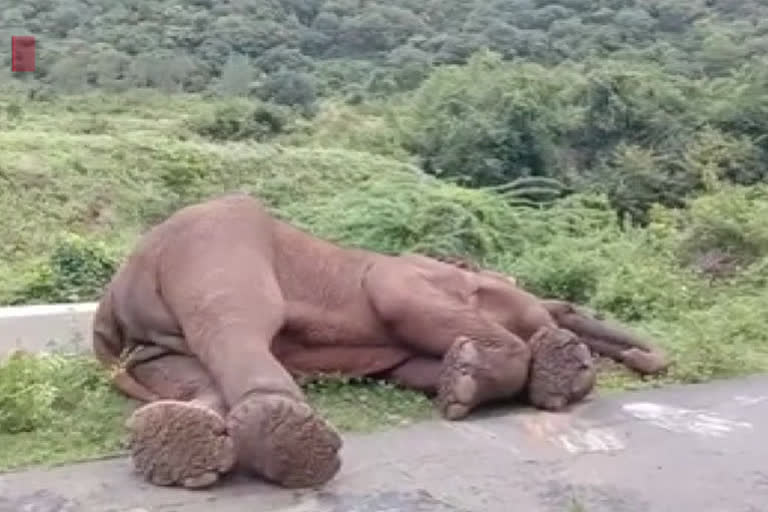Chennai (Tamil Nadu): A day after an elephant died of anthrax in a Reserve Forest (RF) near Anaikatti in Coimbatore district in Tamil Nadu, the incident has raised many brows especially about safety and protection of elephants in the state. In the last week alone, three pachyderms lost their lives in different incidents. The wildlife activists point their fingers at the forest department for poor vigilance in the forests across the state.
In the first incident, a male elephant was found dead in Theppakkadu coming under the Mudumalai Tiger Reserve (MTR) in the Nilgiris last Saturday. Another 10-year-old male elephant succumbed to injury on Sunday in Kanyakumari district, while one more jumbo lost its life on Monday in Coimbatore district.
In the recent past, it has become common for elephants to face threats from poachers and people living near forests. While several elephants were hit by speeding trains, some have either been electrocuted or killed by poachers in the state. In January, 2021, an elephant was set on fire leading to massive outrage among the activists. Similarly, three tribal youths attacked and stoned wild elephants in the restricted territory of the forest region of the Tiruppur district in June. On July 9, a mahout and his assistant attacked a jumbo named 'Cheran' in a camp in the Nilgiris district.
Vijay Krishnaraj, coordinator, United Conservation Movement, said, elephant torture by human has steadily been increasing in the state. Last year, the state witnessed several incidents and more than 64 elephants died. In the last six months, there have been more than 20 jumbo deaths. The forest department should take precautionary measures to protect wildlife. Moreover, there should be a strong awareness among the people living around agriculture lands and protected areas over wildlife movement.
Read: India's oldest elephant suffers age-related ailments
Similarly, Vanam S Chandrasekar, founder, Vanam Trust of India blamed the forest department for not taking proper measures to reduce the death of wildlife. "The fact is that most of the elephant deaths occur at Western Ghats. There are various factors like electrocution, poisoning, poaching and pesticides for elephant deaths. The higher-ups in the forest department are failing to monitor their lower-rung officials who should actually be on the field to protect wildlife" he charged. Further, regular bike patrolling should be done on hill area roads and CCTV cameras should be fixed on hill roads, he suggested adding that Anti-Poaching Watchers (APWs) should be selected only from tribal communities.
When contacted by ETV Bharat, state forest minister K Ramachandran assured that necessary measures to protect wildlife are in place. "Most elephants die either due to age factor or infection. The department officials have been instructed to keep a vigil on poachers. We will also create awareness among the people living near forests."
Data available with the state forest department showed that the state had witnessed 84 elephant deaths in 2018, while the number shot up to 108 in 2019. The data also noted that 1,113 elephants lost their lives during the period between 2001-2015.
Read: Tamil Nadu urges Centre not to give permission to Karnataka's Mekedatu dam project



